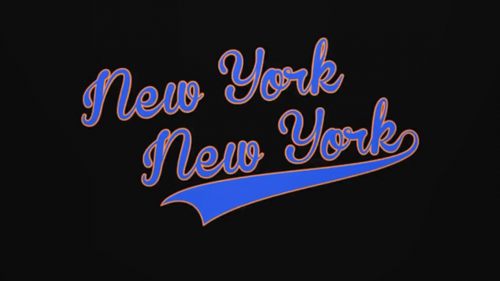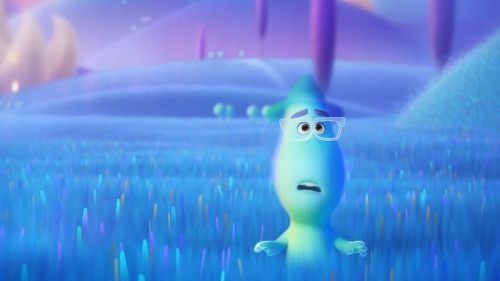Pixar’s New Short Takes On Toxic Workplaces Like Pixar’s
Last month, Pixar announced a pretty exciting new short film initiative called SparkShorts, aimed at giving new talents within the studio short projects of their own. This month, the resultant shorts have begun to drop on YouTube, and the first one - Purl, by Pixar newcomer Kristen Lester - is both a terrific short, and a commentary on the toxic environments common to many workplaces in the animation industry and beyond. It can even be read, specifically, as a commentary on Pixar itself.
Purl tells the story of a ball of yarn, named Purl, joining the staff of financial services company B.R.O. Capital. She’s the only female (or, since we’re talking about yarn here, female-coded) member of a staff entirely made up of human dudes in suits, and as a result gets stamped down or excluded whenever she tries to speak up or join in her co-workers. Her (fairly natural) response is to knit herself into a suit, completely changing her personality to fit into the environment of toxic masculinity. But in making that change, she loses something of herself, and it’s only when another female/yarn character shows up that she realises what that is.
Everybody’s no doubt experienced, or will likely experience, some flavour of toxic workplace behaviour in their lives. Sometimes asshole bosses are just asshole bosses, but more often than not, the targets of their ire are people different to them in some way. Maybe they’re of a different sex or gender. Maybe they’re of a different ethnicity or nationality. Maybe they’re a different age or sexual identity. Or maybe they look or sound or act differently in a way entirely unique to themselves. Whatever it is, difference to the powers that be represents a threat to established power structures and, in the eyes of those powers, must be eliminated.
Whatever your case may be, it’s easy to relate to the cycle depicted in Purl - the abuse, the self-conscious tamping down of one’s identity, and the feelings that arise from that. It’s all too common for coworkers to shun or mock outsiders, and all too easy to fall into toxic behaviour yourself in order to fit in. Hell, I’ve witnessed and experienced more or less the same cycle at multiple workplaces, and it takes quite a bit of self-awareness to check yourself before you wreck yourself. In order to avoid B.R.O's toxicity, Purl becomes it. This is perhaps the worst element of toxic masculinity: its power to not just tear women down, but to make them tear each other down as well.
In the case of Purl and writer/director Kristen Lester, more specific meanings can be inferred. Lester has outright stated, in a “meet the filmmakers” interview, that the story is based on her experience as the only woman working in an animation studio. She makes sure to point out that the studio in question was not Pixar, which she says was the job that showed her “how much of the female aspect of [her]self [she] had sort of buried and left behind,” but based on recent events at Pixar, the short inevitably carries extra weight with it.
Pixar’s entry into the #MeToo headlines came through studio head and five-time Pixar feature director John Lasseter. Lasseter’s sexual assault allegations were wide-reaching, and most shockingly of all involved complicity on the part of Pixar itself, to the extent of the company assigning staff to, according to Variety, “rein in his impulses.”
This kind of boys’-club mentality - which apparently extended well past Lasseter himself - is at the centre of Purl, too. There’s no sexual harassment in the film, obviously (although its content is definitely more “mature” than many Pixar shorts, notably including the words "prick" and "ass"), but there are plenty of dudes backing each other up on shitty behaviour. Lester might speak highly of Pixar, and it’s possible she entirely escaped experiencing that kind of environment there, but it’s impossible to watch Purl without those headlines coming to mind.
Purl is a surprisingly self-aware short coming from Pixar, which has tended to deal in “universal” (read: white, straight, male, American) stories, but has recently begun to open up a little. The mere act of releasing it feels like a mea culpa - one that hopefully is being backed up in the workplace itself. In a way, I’m actually glad it doesn’t point too specific a finger, though. Given the ubiquity of #MeToo headlines, it’s easy to focus entirely on sexual harassment in social and company policy and call it a day, ignoring other, subtler, less headline-grabbing forms of toxic behaviour. That kind of shit is insidious, it’s everywhere, and many of the perpetrators aren’t even aware they’re doing it.
As for the SparkShorts programme itself, it’s super-exciting. Pixar’s track record with shorts is arguably even better than its track record with features, and the fact that this programme is aimed specifically at finding new lead creative voices within the company is particularly exciting. It’s an acknowledgement of the somewhat uniform nature of the studio’s stable of directors, and in a post-Lasseter Pixar and a post-Trump world, it’s hopefully a sign that the studio is actively working to improve. The slate of shorts looks to tackle a wide array of issues from a wide array of perspectives, and I can’t wait to see the rest land online.
(Since the writing of this post, a second Spark Short has appeared online, entitled Smash and Grab. Check it out below.)



